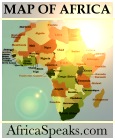US Blackmails Africa to Ditch Zimbabwe
Posted: Friday, March 22, 2002The Herald (Harare)
By Philip Magwaza
March 23, 2002
THE United States government has now resorted to blackmail in an effort to force African countries to isolate and condemn the Zimbabwean Government for winning the just ended presidential election.
In a desperate bid to build consensus on its anti-Zanu-PF and President Mugabe campaign, the American government has promised massive aid to African countries if they ditch Zimbabwe. The American administration has already slapped the country with sanctions.
According to Reuters news agency, a senior US official told African countries on Thursday that US aid to Africa could suffer if they did not take a stand against this month's presidential elections in Zimbabwe.
The United States, Britain and the Commonwealth say the election, won by incumbent President Robert Mugabe, was not free or fair because of violence and intimidation by President Mugabe's ruling Zanu-PF party.
But African governments have rallied behind President Mugabe and declared the election free and fair. Most of these governments felt that Western outrage is driven in part by sympathy for the white farmers who control most of the arable land that Mugabe is redistributing.
Charles Snyder, a deputy assistant of state for African affairs, told a gathering at the Center for Strategic and International Studies in Washington that Zimbabwe had become a test case for attitudes toward governance in Africa.
He said: "We have begun a bargain with Africa in general, a new day in Africa in which we are looking for this new Economic Partnership for African Development.
"The rules of the game call on the Africans to provide good governance, peer review and, if you want, neighborhood watch."
"If Africa doesn't step up here it's going to cripple our ability to provide the kind of economic development assistance we want to provide - not the humanitarian aid, but serious economic assistance," he added.
"The Commonwealth has stepped up and we are gratified by that but we are looking forward to the rest of Africa stepping forward on this," he said.
Snyder said the Bush administration would impose financial sanctions on Zimbabwean leaders, on top of the US visa ban it has already slapped on Mugabe and about two dozen associates.
US officials have said for days they are moving in that direction but have not explained a delay in announcing a freeze of any assets the Zimbabwean leaders may have in the country.
Snyder said: "How that will come out is a matter of bureaucratic infighting, but stay tuned. There will be action on that front as well."
The US official repeated Washington's complaints about the conduct of the presidential elections, which ran from March 9 to March 11, and added that he doubted the authenticity of a tape purporting to support treason charges against the defeated opposition candidate, Morgan Tsvangirai.
"Those of you who have seen the tape, it looks doctored to me, speaking personally, and I've been in the Africa business a long time," he said.
"It's that kind of accusation that goes beyond the norms of politics. That's why we are so outraged."
The Zimbabwean ambassador to the United States, Dr Simbi Mubako, disputed the allegations that the election was rigged.
He said the voting was not perfect but the imperfections could not have changed the outcome.
Although there was a lot of pressure from the United States, the European Union, Britain and other members of the Commonwealth for the imposition of sanctions, the Commonwealth troika on Zimbabwe resisted this pressure resulting in a symbolic suspension of the country from the councils of the 54-nation grouping.
However, this has triggered a new frenzy from Western capitals threatening to impose individual sanctions, which unfortunately were already in place and are unlikely to cause any new damage.
Zimbabwe has survived for over five years now under unofficial sanctions from most European countries that had diverted their funding to promoting opposition politics and civic organisations opposed to the Zimbabwe government.
Canada a long time ally of Zimbabwe was expressing mixed signals following the one year suspension with critics of Canadian Prime Minister Jean Chretien arguing that the suspension was inadequate. Keith Martin a foreign affairs spokesman for the opposition Canadian Alliance Party, said the suspension was an inadequate slap on the wrist.
He called for tougher sanctions, which include an arms embargo and travel ban on President Mugabe and Government ministers. Chretien resisted moves in Australia at the Commonwealth Summit for harsh punitive action. Canada though has already suspended most of its development aid to Zimbabwe and extended its ban on travel to include most Government officials or people with connections to Zanu-PF.
Australia irked by the symbolic one-year suspension was urging its citizens not to come to Zimbabwe.
Without any tangible proof of violence breaking out in Zimbabwe, foreign affairs minister Alexander Downer called on Australian citizens to defer holiday and normal business to Zimbabwe.
Analysts wondered whether Australia was going to fuel unrest and create a chaotic state of affairs.
However, its cricket team due to tour Zimbabwe has refused to cancel its trip.
In London gay rights activist Peter Tatchell told Reuters that Zimbabwe human rights watchdog Amani Trust had documented hundreds of incidents of what they called state sanctioned torture which should be used to arrest President Mugabe.
However, it has since been revealed that the Amani Trust was just a front for the MDC used to document alleged cases of violence against the opposition party and to shelter alleged victims of political violence who were used for demonstrations and political attacks on the ruling party.
British foreign secretary Jack Straw is dying for stiffer penalties against Zimbabwe.
He is hoping that this weekend's European Union meeting in Barcelona should review sanctions against Zimbabwe.
Denmark because of its close links with MDC since its formation has openly shown its dislike for the Zimbabwe Government. The Danish Government has gone to the extent of closing its embassy in Harare and relocated to South Africa.
Switzerland according to reports is proposing travel and financial restrictions against Zimbabwe. New Zealand, the home country of the Commonwealth secretary general, Don McKinnon is advocating for the barring of Zimbabwe from the Commonwealth Games.
The agenda, it has since emerged, is not about elections which have been described as legitimate by African countries, China and other progressive nations but, the removal of President Mugabe because of his land reform programme which threatens the lavish lifestyles of white farmers in Zimbabwe.
Reprinted from:
http://allafrica.com/stories/200203230233.htmlPrinter friendly version
Send page by E-Mail

Previous Page | Zimbabwe Watch | Historical Views | Home
NOTICE: All articles are the copyright property of the writers. In accordance with Title 17 U.S.C., section 107, some material on this site is provided without permission from the copyright owner, only for purposes of criticism, comment, scholarship and research under the "fair use" provisions of federal copyright laws. Visit: http://www.law.cornell.edu/uscode/17/107.shtml for more details. If you wish to use copyrighted material from this site for purposes of your own that go beyond 'fair use', you must obtain permission from the copyright owner.










